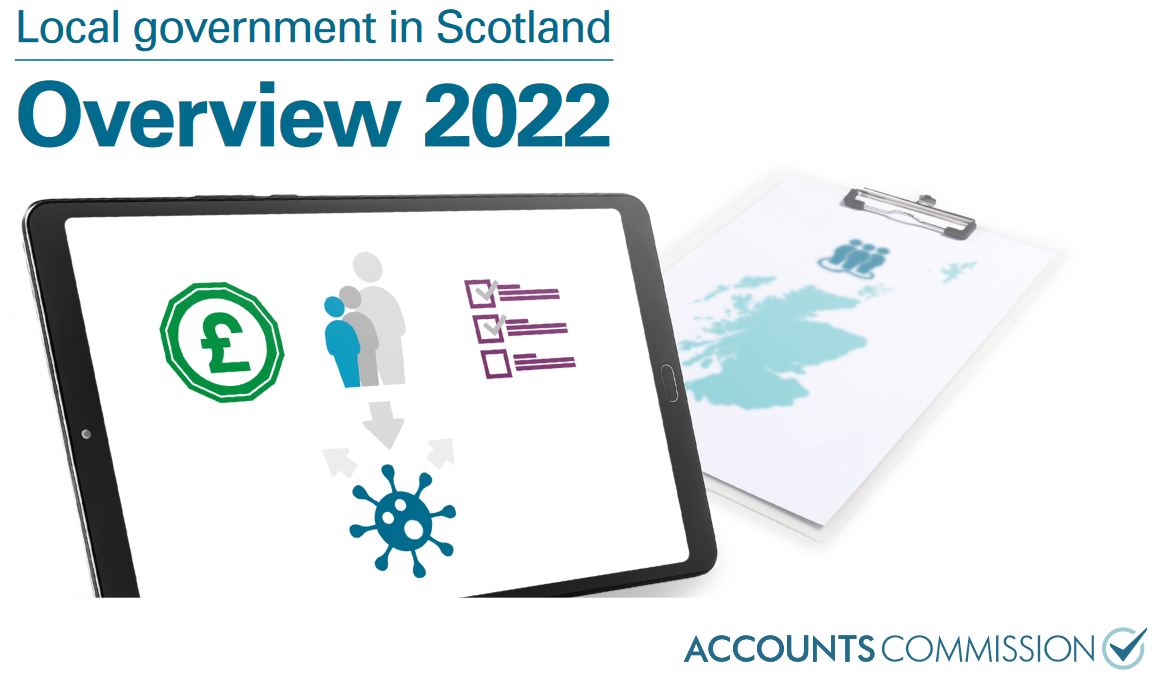Scotland’s councils hampered by increasing demand, service backlogs and financial uncertainty

Scotland’s councils have had a pivotal role in supporting and working with communities as they responded to the impacts of Covid-19 but face an increasingly challenging and complex future, according to the Accounts Commission.
The watchdog said councils must now lead recovery work with and alongside their local communities, focusing on getting the services people need in place as pressures and stresses escalate and impact the day to day lives of individuals and communities.
In its 2022 Local Government Overview report, the Accounts Commission, which reports to the public on the performance of local government, are clear that recovery and renewal across councils isn’t about a return to pre-pandemic service delivery. It must be about much more, changing and challenging how services are delivered.
The position for councils is, however, challenging and complex:
- dealing with increasing demand and service backlogs
- long-standing pressures, including rising poverty and inequalities
- high absence levels and acute skills shortages amongst some key front-line workers
- a lack of certainty and flexibility over long-term funding
- national priorities, including climate change and public sector reform.
William Moyes, chair of the Accounts Commission, said: “Councils are operating in a complex and increasingly volatile, unprecedented and unpredictable environment. Strong leadership from councils is needed now more than ever, with new and returning councillors being able and willing to make difficult decisions about where and how to spend highly pressurised resources.
“Pressures on councils and their communities have intensified from spiralling inflation and significant increases to the cost of living. This has direct and unintended consequences on councils at a time when they sought a period of stability to tackle the impacts of the pandemic. Councillors and senior officers must use learning from the past two years, working with their partners and communities in the recovery, renewal and difficult decision making about the future of services.”









